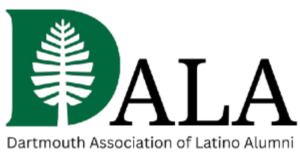
Promoting Equity and Diversity: Addressing Tenure Decisions at Dartmouth
The Dartmouth Association of Latino Alumni (DALA) is committed to fostering a culture of inclusivity and equity within Dartmouth College. We recognize the need for faculty that reflects the richness and diversity of Dartmouth’s student body. Recent concerns regarding tenure decisions, including the denial of tenure to beloved Professor Patricia (Tish) Lopez, underscore the existence of a significant inclusivity gap that must be addressed. Professor Lopez is widely respected as a teacher and talented academic, whose departure we see as an extremely regrettable loss for Dartmouth, and specifically for our community.
As alumni, we recognize the importance of an academic environment that encompasses a wide variety of perspectives and experiences. It is crucial for Dartmouth to prioritize initiatives aimed at increasing the number of tenure positions held by women and faculty of color. This can be achieved through an equitable and transparent tenure evaluation process that ensures fair consideration and opportunities for advancement.
Taking inspiration from other elite institutions, we can look at the tenure reform efforts undertaken by Ivy League universities as examples. Harvard University, for instance, announced a set of reforms in 2019, focusing on increasing faculty diversity and addressing issues in the tenure process. Their initiatives included the establishment of a faculty development and diversity fund, and a more flexible approach to evaluating non-traditional scholarship and interdisciplinary work.
Similarly, Princeton University launched the FOCUS on Diversity and Inclusion initiative in 2019. This initiative aimed to increase faculty diversity and foster an inclusive academic community. As part of the effort, Princeton developed new guidelines for evaluating faculty scholarship that emphasized the importance of considering care work and student interaction, and that explores diverse perspectives and experiences.
Yale University has also made significant strides in promoting diversity in faculty tenure decisions. Through their Diversity, Equity, and Faculty Development Initiative, Yale provides dedicated funding resources and support for the recruitment, retention, and professional development of diverse faculty members. The university has expanded the tenure clock to accommodate caregiving responsibilities and personal circumstances, demonstrating a commitment to inclusivity for both women and men who are parenting or caring for a family member.
Columbia University has implemented reforms to promote equity in the tenure process. The university established the Office of Faculty Diversity and Inclusion, which supports the recruitment and retention of underrepresented faculty members. Columbia also provides unconscious bias training for tenure committees and revised tenure guidelines to ensure that non-traditional forms of scholarship and interdisciplinary work receive fair consideration.
We should emphasize that we highly value the concept of tenure, which provides job security and academic freedom, but tenure may also perpetuate disparities in faculty diversity due to historical gaps and restrictions on budgeting, funding, support, and evaluation metrics. We also value the Teacher-Scholar model, which places significant emphasis on both education and research as key criteria for tenure decisions. And we do realize that Dartmouth has made strides in Diversity, Equity, Inclusion and Belonging, including the development of a strategic plan with accountability milestones and the creation of additional faculty track lines. Even so, we still have a ways to go before the strategic objectives outlined, for example, in the 3-year diversity and inclusion plan: Toward Equity, launched by the Office of Institutional Diversity & Equity in 2022.
We believe that Dartmouth should examine the best practices of other institutions and make a firm commitment to recruit and retain a diverse cohort of tenured faculty. This can be achieved, for instance, by prioritizing budgets toward this area of spending. Opening more faculty track lines would achieve this objective, to increase the total number of tenure faculty to 900. We consider this to be essential if Dartmouth wishes to continue its journey to being both the small, intimate college we all love, and the leading research university wewish it to be. For instance, if $100M per year of the $3.6B Call to Lead Campaign was dedicated to this important investment, we believe this objective would be met. This is a win-win scenario, retaining world classexperienced faculty from the diverse tapestry of communities represented at Dartmouth.
Additionally, the College should allocate adequate funding and support to bridge continuing gaps in resources for students, to reduce stressors such as staff shortages, work-study, insufficient student financial aid, and to provide for dedicated resources in counseling, well- being and mental health.
Dartmouth should ensure that the burden of care work, mentoring and counseling does not fall disproportionately on younger faculty of color. Mentoring, counseling and support should be rated highly in evaluation metrics and advancement decision criteria, as part of a merit-based system that includes fair distribution of resources across departments. By investing in these areas, Dartmouth can empower all faculty to fully engage in their academic and research pursuits while offering comprehensive support to students. This holistic approach will contribute to an enriching educational environment that benefits all members of the Dartmouth community. With the right strategic intent, and the right level of resources, Dartmouth can outcompete any other elite institution in the recruitment and retention of talented faculty.
We approach these concerns with a conciliatory spirit, emphasizing the shared goal of strengthening Dartmouth’s commitment to equity, diversity, and inclusion. By recognizing the need for a diverse faculty and taking proactive measures to bridge the existing gaps, Dartmouth can create an environment that is truly reflective of its student body. It is through collaboration and open dialogue that we can collectively work towards positive change.
DALA stands ready to collaborate with Dartmouth College to address these issues. We believe that by joining forces, we can create an environment where every student feels supported, every faculty member thrives, and Dartmouth remains a beacon of inclusivity and excellence.
Kially RUIZ D’98
President
Dartmouth Association of Latino Alumni